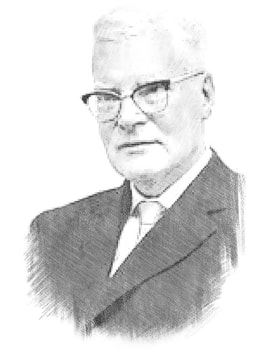Romans 10
|
Romans 10:1:
Brethren, my heart's desire and prayer to God for Israel is, that they might be saved. |
Paul’s heart’s desire also translated into concrete action: prayer to God for Israel. Paul didn’t just “care,” he prayed. |
|
Romans 10:2:
For I bear them record that they have a zeal of God, but not according to knowledge. |
In other words, “These people mean well. They truly love a concept of God and try to please Him. But they are ignorant of what He has provided for them in Jesus Christ!" Focus your zeal a get to know the real Jesus. |
|
Romans 10: 3-4:
3 For they being ignorant of God’s righteousness, and seeking to establish their own righteousness, have not submitted to the righteousness of God. 4 For Christ is the end of the law for righteousness to everyone who believes. |

Paul talked about the Israelites were very zealous for God. They wanted to be God’s people, so they sought out how to be righteous before God on their own. They would not submit to the righteousness of God–that is Jesus.
All over the world there are many people who claim to believe in God. They are quick to say that they have a belief in God. Many will say that they believe that they will get into heaven. When asked why they will get into heaven, many will say because they are a good person, never killed anyone and believe in God. They believe that their own works will get them into heaven. Many in the church believe in the same way, they believe that they are righteous because of what they do. They go to church, read the bible, and are a good person. [SOURCE: Insights from Tom] |
 Ray Stedman
Ray Stedman
I do not think there is any word in the Christian vocabulary that makes people feel more uncomfortable than the word "saved." People cringe when they hear it. Perhaps it conjures up visions of hot-eyed, zealous buttonholers -- usually with bad breath -- who walk up and grab you and say, "Brother, are you saved?" Or perhaps it raises visions of a tiny band of Christians at a street meeting in front of some saloon singing, "Give the winds a mighty voice, Jesus saves! Jesus saves!" Whatever the reason, I do know that people become bothered at this word.
I will never forget the startled look on the face of a man who came up to me in a movie theater. The seat beside me was vacant, and he said, "Is this seat saved?" I said, "No, but I am." He found a seat across the aisle. Somehow this word threatens all our religious complacency and angers the self-confident and the self-righteous alike.
And yet, when you turn to the Scriptures you find that this is an absolutely unavoidable word. Christians have to talk about men and women being saved because the fact is that men and women are lost. There is no escaping the fact that the Bible clearly teaches that the human race into which we are born is already a lost race. This is why the good news of John 3:16 is that "God so loved the world that he gave his only begotten Son, that whoever believes in him should not perish -- not perish -- but have everlasting life," (John 3:16 KJV).
We can never deal realistically with life until we face up to this fundamental fact: People are not waiting until they die to be lost -- they are already lost. It is the grace of God that reaches down and calls us out of that lostness and gives us an opportunity to come to Christ and be saved. Therefore saved is a perfectly legitimate word to use. It makes us uncomfortable only when we refuse to face the fact that men and women are lost. They are born into a perishing race in which their humanity is being put to improper uses and is gradually deteriorating and falling apart, and they are facing an eternity of separation from God. These are the facts as the Scriptures put it. --Ray Stedman
I will never forget the startled look on the face of a man who came up to me in a movie theater. The seat beside me was vacant, and he said, "Is this seat saved?" I said, "No, but I am." He found a seat across the aisle. Somehow this word threatens all our religious complacency and angers the self-confident and the self-righteous alike.
And yet, when you turn to the Scriptures you find that this is an absolutely unavoidable word. Christians have to talk about men and women being saved because the fact is that men and women are lost. There is no escaping the fact that the Bible clearly teaches that the human race into which we are born is already a lost race. This is why the good news of John 3:16 is that "God so loved the world that he gave his only begotten Son, that whoever believes in him should not perish -- not perish -- but have everlasting life," (John 3:16 KJV).
We can never deal realistically with life until we face up to this fundamental fact: People are not waiting until they die to be lost -- they are already lost. It is the grace of God that reaches down and calls us out of that lostness and gives us an opportunity to come to Christ and be saved. Therefore saved is a perfectly legitimate word to use. It makes us uncomfortable only when we refuse to face the fact that men and women are lost. They are born into a perishing race in which their humanity is being put to improper uses and is gradually deteriorating and falling apart, and they are facing an eternity of separation from God. These are the facts as the Scriptures put it. --Ray Stedman
 Paul Althaus
Paul Althaus
Conversion is therefore much more than an ethical turning or reversion, for example the turning from ethical looseness or neglect to moral seriousness, from contempt of the commandments of God to obedience to them. Such an ethical conversion is also possible without Christ and the gospel and is not uncommon—for this one does not need Jesus Christ. Conversion in the Christian sense will also include concrete instances of ethical conversion, but certainly not in every case, as the example of the Apostle Paul demonstrates: conversion can also be for a "good man," a Pharisee, therefore an ethically superior person. Here too is it conversion of a sinner. But the sin is in this case not the lack of an ethic, but on the contrary the empty noise of morality, precisely in one’s height, the "erecting their own righteousness" (Rom. 10.3), and so the sin is against the first commandment. Conversion in this sense has a meta-ethical character, and so in this way it is a wholly "becoming new" of a man, a new birth. The man has now come out of unbelieving into believing, out of either unethical or ethical self-glory and security into the humble foundation of grace alone; out of reliance upon his own morality into the vibrant desire of God’s favor only in Christ. This means a transformation of life in the very depth of who he is. It is not to understand growth or development as simply a new step, not as simply a breakthrough into greater depth, stronger earnestness; it leaves its only mark as a break, as a total turning out of spiritual death into life.
--Paul Althaus (1888-1966); Zeitschrift fur Systematische Theologie.
--Paul Althaus (1888-1966); Zeitschrift fur Systematische Theologie.
|
Romans 10:5-17: For Moses writes about the righteousness which is of the law, “The man who does those things shall live by them.
6 But the righteousness of faith speaks in this way, “Do not say in your heart, ‘Who will ascend into heaven?’” (that is, to bring Christ down from above) 7 or, “‘Who will descend into the abyss?’” (that is, to bring Christ up from the dead). 8 But what does it say? “The word is near you, in your mouth and in your heart” (that is, the word of faith which we preach): 9 that if you confess with your mouth the Lord Jesus and believe in your heart that God has raised Him from the dead, you will be saved. 10 For with the heart one believes unto righteousness, and with the mouth confession is made unto salvation. 11 For the Scripture says, “Whoever believes on Him will not be put to shame.” 12 For there is no distinction between Jew and Greek, for the same Lord over all is rich to all who call upon Him. 13 For “whoever calls on the name of the Lord shall be saved.” 14 How then shall they call on Him in whom they have not believed? And how shall they believe in Him of whom they have not heard? And how shall they hear without a preacher? 15 And how shall they preach unless they are sent? As it is written: “How beautiful are the feet of those who preach the gospel of peace, Who bring glad tidings of good things!” 6 But they have not all obeyed the gospel. For Isaiah says, “Lord, who has believed our report?” |
In faith there is enough light for those who want to believe and enough shadows to blind those who don’t. -Blaise Pascal (1623-1662) Through Jesus the new covenant promises salvation from sin. Romans 10:13 “For whosoever shall call upon the name of the Lord shall be saved.” A sinful way of life is characterized by being a slave to the worldly things that you have a passion for and love in such a way as to suffer over them. It is the will of a merciful God that all should be saved. Jesus came to extend his grace and fight for us, to free us from this slavery. God put an end to the division between him and his children, the division put there by Satan’s cultivated corruption, stealing peace, killing dreams, and destroying futures. Isaiah 9:7 “Of the increase of His government and peace there will be no end, upon the throne of David and over His kingdom, to order it and establish it with judgment and justice from that time forward, even forever. -Karen Marie Parker
|
 Crissa Esse
Crissa Esse
According to Romans 10:14, for someone to hear the powerful Word of God, someone else has to proclaim it. Dear pastors, proclaiming God’s Word is the greatest responsibility and privilege God gave you, so never neglect or belittle it. Be encouraged—it matters more than you realize.
--Crissa Esse; Gospel Coalition; Faithful Pastors, You Matter to Your Youth 9.1.23
--Crissa Esse; Gospel Coalition; Faithful Pastors, You Matter to Your Youth 9.1.23
Romans 10:10 says, “For with the heart one believes unto righteousness.” Real faith is not just intellectual concepts nor theology nor doctrine. It is heart faith which works along one primary line—love. In conjunction with this, look at Galatians 5:6: For in Christ Jesus neither circumcision nor uncircumcision avails anything, but faith working through love. That is a simple, yet profound, statement. We need to constantly remind ourselves that the only thing that really matters in the whole Christian life is faith that works by love. We can get so sophisticated that we have answers to all sorts of theological questions and still miss the one central reality—faith in the heart working by love. Without that, you have missed it all. -Derek Prince
| It is late in the history of the world to be going into the question of the origin of a Book, which began to be written about four thousand years ago, and the writing of which extended over half that time; but late or early, the question seems with some people to be still undecided, and open to debate; and certainly the antiquity of the dispute does not in the least lessen its importance, neither does it tend to diminish the ardour of the combatants, nor the interest of the onlookers.
It is a question which no thoughtful person will ever relegate to a secondary place in man's pursuit of knowledge, for the tremendous claim made by the Book itself, causes the question of its title to that claim, to take the precedence of all others. Nor are men really able to treat the question with indifference. The sang-froid which characterizes some who profess to have settled the matter in favour of thick darkness, as opposed to a revelation from God, bears the stamp of being only skin-deep, and not the outcome of honest conviction. It scarcely needs to be asserted that the leaders of the world bear the Book no goodwill, but rather the opposite, and therefore has it been subjected to ceaseless hostility, and to a criticism more fierce than that which has fallen to the lot of any other writings. It has been, and is, more fervently loved, and more intensely hated, than all the rest of the world's books put together; and the strange thing about its history is, that the house of its supposed friends is the place where it has been most sorely wounded. Those who have been foremost in their protestations of zeal in the service of its Author have shown themselves to be its worst enemies, and in their custody it had to remain for ages "a prisoner in bonds." How it survived the persecutions to which it was exposed, is almost as great a miracle as is the way in which it was given to man. Thank God, the days of its incarceration are over, and it is free to tread its pathway of blessing throughout the wide world. In the days of Luther a moral resurrection took place through the grace of God. The German monk who eventually shook the throne of the proud bishop of Rome, saw in the dim cloister, through its sacred page, a light above the brightness of the sun; and when his voice arose heralding in the ears of men, the life-giving words of the dusty roll, the wheel of the papal chariot became scotched for ever, the powers of darkness were alarmed, and hell stood aghast before the boldness of this daring man. The power of God made itself felt, and the tiara trembled on the brow of him who trafficked in the souls of men, as he saw the hope of his gains vanishing from before his eyes. Men began to speak their minds more openly, the priestly bondage under which they had groaned was no longer discussed in whispers, and even kings began to breathe more freely, for the epistle of the apostle to the Romans now clung at the throat of the Italian prelate. Such is the power of this most wonderful Book. It declares itself to be of heavenly origin: the very words of the living God, breathed into the hearts and minds of His servants, and penned by them as they were moved by the Holy Ghost. No other communications on earth make such claim to universal homage. The writers dive away back into the past eternity, before sun, planet, or attendant satellite gleamed forth upon the brow of heaven, and bring to light the secret counsels of the eternal Father. It shows us those counsels worked out in time by the eternal Son, in the power of the eternal Spirit, until the final result of all the activities of the triune God bursts upon our vision in a new heaven and a new earth, crowned with the glory of the tabernacle of God, in the midst of redeemed creation, in which righteousness shall dwell for ever. It tells us of the beginning of all things, of the fall of the devil, of the fall of man, of God's gracious dealings with the latter when fallen, of the love of God, of the death of Christ, of His resurrection, of His session at the right hand of God, of His coming again, and of the subjugation of everything to Himself. It leads the heart and mind into things unseen, and regales the soul with unutterable delights in the sanctuary of eternal love. It opens up before our vision the blackness of darkness, the God-forsaken region of despair, where ceaselessly rage the tempests of almighty wrath. It brings to light the corrupt God-hating heart of fallen man, and the infinite and holy love of a Saviour-God. It guides us to the fountain of all good; and shows us, but brings us not nigh, the source of evil. It describes the ceaseless conflict between these two opposing forces adown the black history of a fallen world, until the day in which the battle is brought to a conclusion by the triumph of good; and the heavens and the earth are purified from the presence of evil, which finds its place, with the Devil who brought it into existence, in the lake of fire, the eternal abode of that "liar" and "murderer." It declares that God is love. Creation presents Him as infinite in wisdom and power, but we see evil rampant around us, and man beneath its merciless hoof. There are traces of His goodness everywhere; and in the midst of its unutterable woes, gladness of heart visits the most unfortunate. But the fact that the griefs of the human race are so freely interspersed with innumerable joys, only makes the puzzle of man's existence all the more intricate and difficult of solution. If it were all evil one would be in measure justified in attributing the creation to the caprice of a demon, and were it all good the aspersion of the true character of God would be unpardonable; but to find these two principles everywhere, and mixed together in a struggling and hopeless mêlée, with evil ever apparently triumphant, is bewildering to the finite mind. The woes of the human race are beyond the possibility of exaggeration, and seem to rise up at every turn as a witness against the notion of infinite goodness; for if God be all powerful, how is it that for so many millenniums His creature has been left in this corner of His creation to welter unpitied in his wretchedness? Can the Creator be indifferent to the woes of His creature? Who can tell us? Is there no voice from Him? I am certain if there is no revelation from God, there is no God. But the whole universe around me bears witness to the reality of a Creator, and although the visible things do not contain the secret of the nature of Him who brought them into existence, there is enough of evidence borne by them, to convince every intelligent being that He, without whom a sparrow cannot fall to the ground, could not leave His poor creature without some ray of light as to how he stands with respect to His holy and righteous will. The idea of a universe such as surrounds us, without a Creator, is to me unthinkable; and that man should be brought forth to fall a prey to his wretched lusts, and to grope his weary and painful way to the grave in suffocating gloom, squabbling with his fellows about questions upon which none can boast of having one ray of light, and which never can be solved, is just as unthinkable. I find myself so formed that I am unable to get away from the idea of a Creator, and One with whom I have to do; I am also impressed with the fact that my Maker is beneficent, for of this I see abundant traces on every hand; and I am sure of this also that He has not left man in any clime without witness as to His beneficence. I have tried to get away from the thought of a Being with whom I had to do, and I have not been able; I have done my best to get out of my mind the conviction that He has spoken, and in this I have been likewise unsuccessful. Where, and how, He has spoken, is another matter, but spoken He has, of this I am convinced. Man must have some light, and God will give it to him, even though he is certain to be unfaithful to it. Without testimony I am sure God will never leave him. I am not at present saying from whence such thoughts came to me; I am only speaking of the way I seem to be impressed as I look around me, and meditate upon that which I see taking place on the earth. We would be worse off than the beasts had we no light from God, for they are not burdened with the terror of having to do with Him, and we are. The question is not, Has God spoken? but, How? I shall be told at once that it is not by the Bible. But I must ask, Why not by the Bible? Shall I be met with the stereotyped objection that it is full of contradictions, and is altogether wrong as to the plan of the universe; that it makes it geocentric, and has spoken of the earth as a plain. It has done nothing of the kind. It is so carefully written, that its statements never jar upon the mind of the most advanced scientist, not do they cause the most illiterate to move in the direction of astronomical discovery. But may I ask, what impression does the universe convey to the mind of the ordinary mortal, as he looks abroad into the starry night from his cottage door? Will he not conceive of the earth as a flat plain, and the dome of heaven as a hemisphere, resting upon the rim of the earth? Could He who is infinite in wisdom have made the visible things no other way? The truth is that the heavens and the earth are so ordered that moral impressions are conveyed to the mind. Everything away from earth is upward and above man, and man is made to look upward to God who has His dwelling-place in the heavens. The Bible has a way of its own, by which it leaves these impressions undisturbed. If it gave other impressions, and taught the Newtonian theory, we might with some show of reason conclude that the God of creation is not the God of the Bible. I am not attempting to prove by this, that the Bible owes its origin to the Creator, I am only showing, that if the Bible leaves undisturbed the impression that creation itself gives to the naked eye of the ordinary observer, that is no proof against the divine origin of the Scriptures. There are many other objections advanced by the infidel mind of man, but they are all equally worthless, and have been disposed of again and again. Man naturally hates the light, and this is why the Bible is ever the great object of attack. But though man may, and does, hate the light, it has come into this dark world for the salvation of his immortal soul. What other light has he which shows him God fully declared? He is of few days and full of sorrow, and in the end has to submit to death, and where it will land him he knows not. It is a foe fronted with terror, blind to the sight of misery, deaf to all entreaties, and dumb with regard to where it conducts its victim. It has been in the world for nigh six thousand years, and men know as little about it to-day, as they did at the beginning. Men hope it will lead to something better than the present life, but what proof have we that the region into which it leads, is not more replete with horrors than is the one out of which it conducts us? Were it an angel of light sent to escort us into a scene of joy and endless tranquillity, would its aspect be so full of terrors, or its weapon so dreaded? Surely not. We need some light from God, for death gives us no reason to suppose that, however bad it may be here, it is any better beyond. A beneficent Creator will not leave His creature without testimony. A revelation is a necessity both for His glory and our blessing; and this revelation we gratefully recognize in the Scriptures. |
|
Romans 10:12:
For there is no distinction between Jew and Greek, for the same Lord over all is rich to all who call upon Him. |
Similarly, 1 Peter 2:9-10 says, “But you are a chosen people, a royal priesthood, a holy nation, God’s special possession, that you may declare the praises of him who called you out of darkness into his wonderful light. Once you were not a people, but now you are the people of God; once you had not received mercy, but now you have received mercy.” The particular verse by Apostle Peter emphasises that everyone who believes in Christ has become part of God’s chosen people. Numerous other verses from the Bible debunk the assertions of dispensationalism and Christian Zionism (Exodus 19:5,6, Ephesians 2:11-18, Romans 2:11, only to name a few). Dismissing dispensationalism, adherents of Replacement Theology hold the view that God’s covenant to Jewish patriarchs (Abraham, Issac, and Jacob) were fulfilled in Christ, and the Church (meaning, all those who follow Christ and not a physical place called ‘Israel’) is the ‘new Israel’, according to II Corinthians 1:20.
|
|
Romans 10:18-21:
But I say, have they not heard? Yes indeed: “Their sound has gone out to all the earth, And their words to the ends of the world.” 19 But I say, did Israel not know? First Moses says: “I will provoke you to jealousy by those who are not a nation, I will move you to anger by a foolish nation.” 20 But Isaiah is very bold and says: “I was found by those who did not seek Me; I was made manifest to those who did not ask for Me.” 21 But to Israel he says: “All day long I have stretched out My hands To a disobedient and contrary people.” |
Did not the Jews know that the Gentiles were to be called in? They might have known it from Moses and Isaiah. Isaiah speaks plainly of the grace and favour of God, as going before in the receiving of the Gentiles. Was not this our own case? Did not God begin in love, and make himself known to us when we did not ask after him? The patience of God towards provoking sinners is wonderful. The time of God's patience is called a day, light as day, and fit for work and business; but limited as a day, and there is a night at the end of it. God's patience makes man's disobedience worse, and renders that the more sinful. We may wonder at the mercy of God, that his goodness is not overcome by man's badness; we may wonder at the wickedness of man, that his badness is not overcome by God's goodness. And it is a matter of joy to think that God has sent the message of grace to so many millions, by the wide spread of his gospel. --Matthew Henrys |










